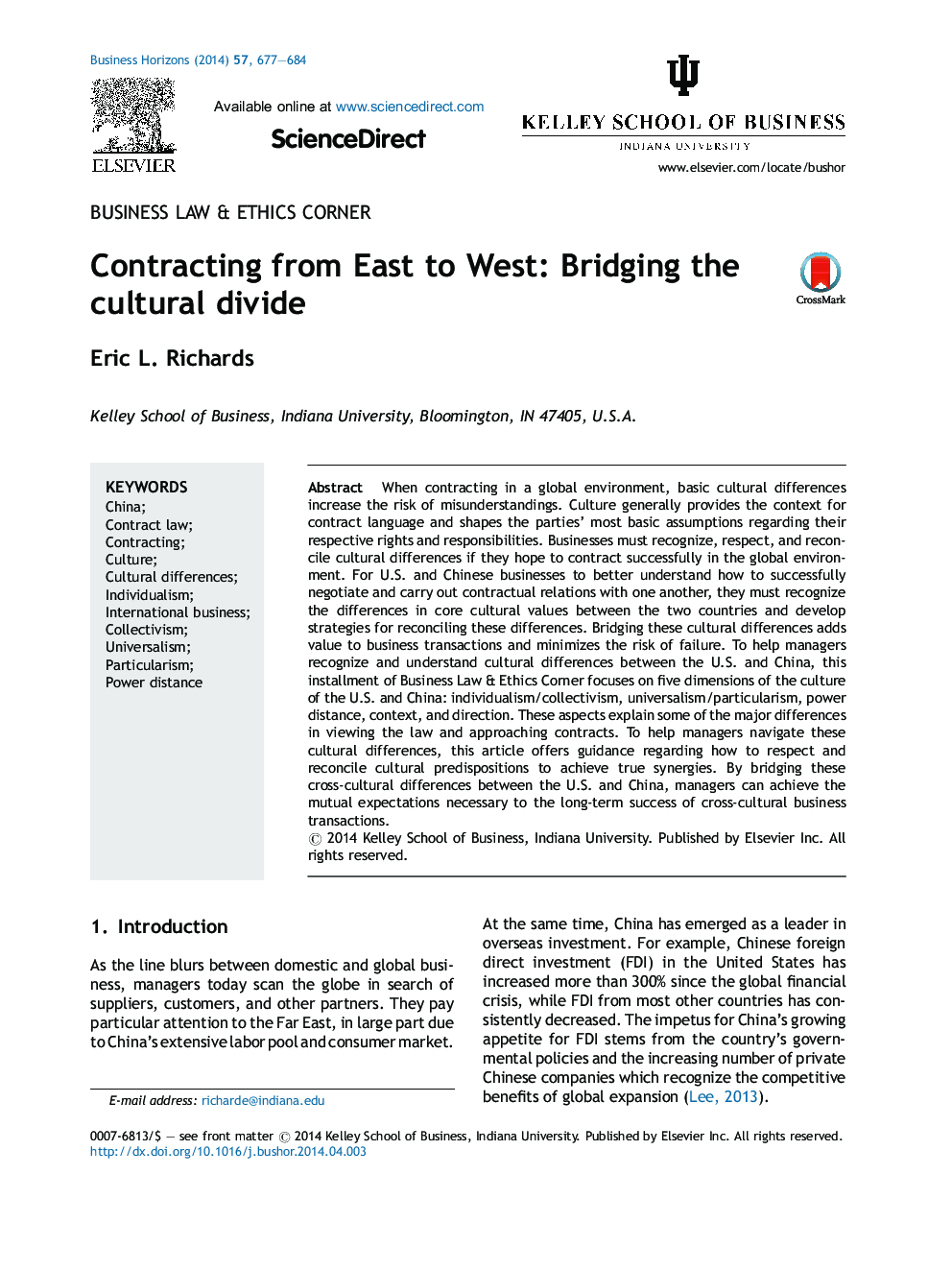| کد مقاله | کد نشریه | سال انتشار | مقاله انگلیسی | نسخه تمام متن |
|---|---|---|---|---|
| 1013939 | 939340 | 2014 | 8 صفحه PDF | دانلود رایگان |
When contracting in a global environment, basic cultural differences increase the risk of misunderstandings. Culture generally provides the context for contract language and shapes the parties’ most basic assumptions regarding their respective rights and responsibilities. Businesses must recognize, respect, and reconcile cultural differences if they hope to contract successfully in the global environment. For U.S. and Chinese businesses to better understand how to successfully negotiate and carry out contractual relations with one another, they must recognize the differences in core cultural values between the two countries and develop strategies for reconciling these differences. Bridging these cultural differences adds value to business transactions and minimizes the risk of failure. To help managers recognize and understand cultural differences between the U.S. and China, this installment of Business Law & Ethics Corner focuses on five dimensions of the culture of the U.S. and China: individualism/collectivism, universalism/particularism, power distance, context, and direction. These aspects explain some of the major differences in viewing the law and approaching contracts. To help managers navigate these cultural differences, this article offers guidance regarding how to respect and reconcile cultural predispositions to achieve true synergies. By bridging these cross-cultural differences between the U.S. and China, managers can achieve the mutual expectations necessary to the long-term success of cross-cultural business transactions.
Journal: Business Horizons - Volume 57, Issue 5, September–October 2014, Pages 677–684
